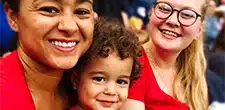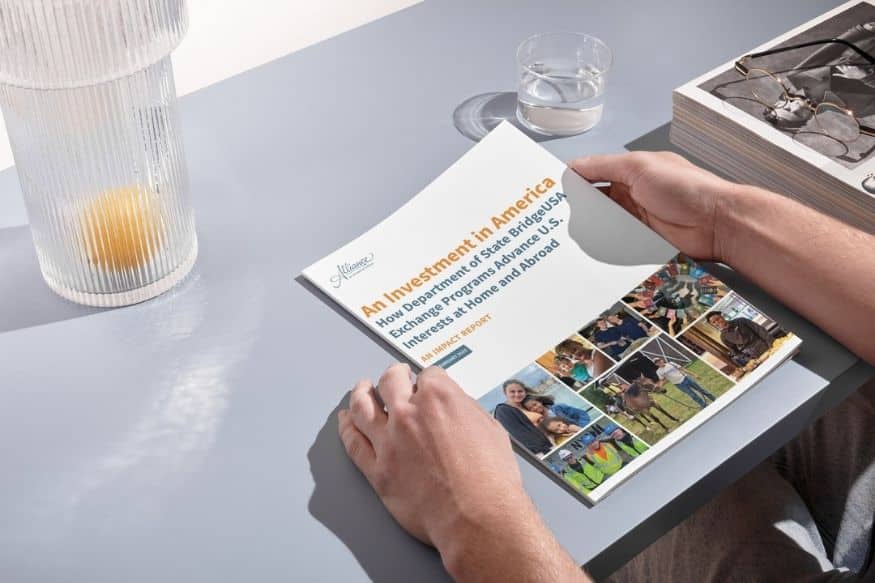
Image courtesy of Mark Overmann
During a recent family trip to Europe, my 7-year-old niece loved showing off her Spanish skills. She’s in an immersion program at her school in Laramie, Wyoming, and half her days are spent speaking Spanish. None of the countries we visited (the Czech Republic, Austria, and Hungary) are Spanish-speaking – but even so, my niece understood she was in a non-English speaking environment and responded by using the one foreign language she knows.
And she loved learning words in the local languages. “Ahoj,” the Czech word for “hi” that sounds like a pirate’s greeting, was a favorite. This early language learning is shaping her mind and worldview. But very few of her peers around the U.S. have similar opportunities. And will she continue to have similar opportunities as she gets older?
As Bénédicte de Montlaur from the French Embassy in the U.S. points out in a recent New York Times article, language learning in the U.S. is not in a good place. Only 20% of American K-12 students are studying a language. Colleges are cutting hundreds of language programs.
And yet, Ms. de Montlaur notes, there is also a growing “rethinking” of how language learning should happen in the U.S. My niece’s public school immersion program seems to be part of that. This slight shift includes prioritizing everyday, practical use of a language (how to work and socialize, not just conjugate verbs), as well as starting instruction and immersion at a younger age.
Ultimately, I know my niece’s experience with this immersion program will be a success. She’ll come away with Spanish ability, yes, but perhaps more importantly, studying a language is helping her build, as my colleague Tanya Burovtseva calls it, her “curiosity muscle.” She’s learning to be open and accepting, to interact in complex environments, and to see that her norms aren’t everyone else’s norms. These experiences at a young age will significantly help her navigate a complex, global world as she grows older.
I hope that programs like hers are part of a growing movement, not just one-offs. Vastly more young Americans need to be able not just to speak foreign languages, but also to have those strong “curiosity muscles” language study can help them build. Their ability to succeed in the future depends on it.

















